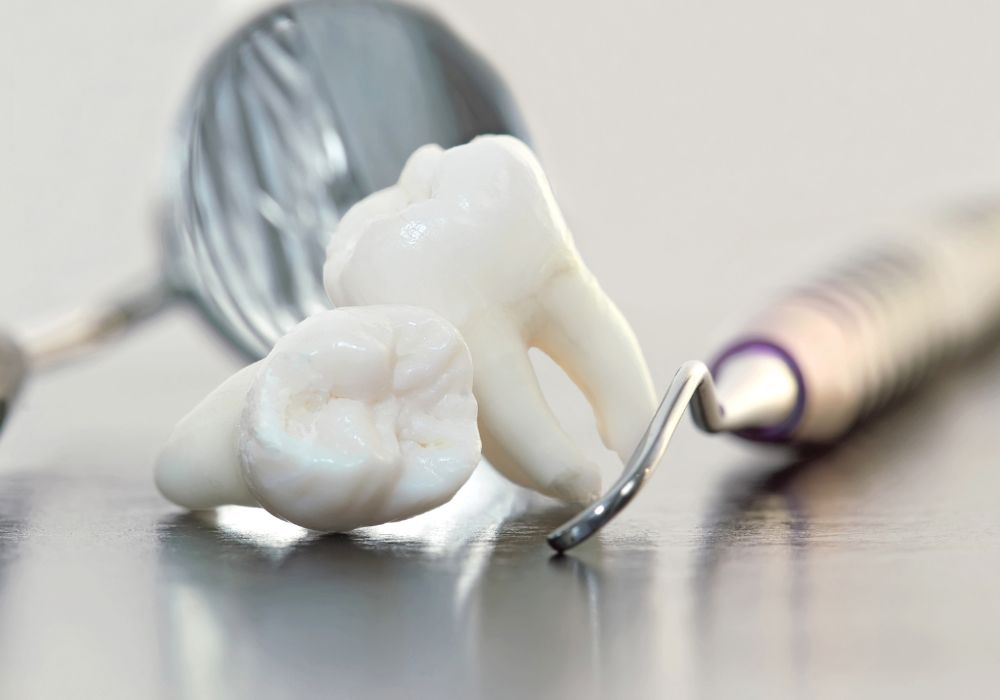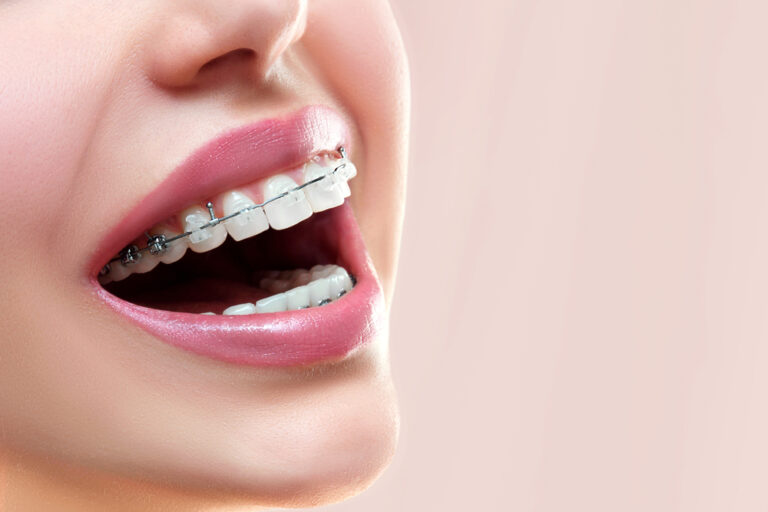For many people, your wisdom teeth erupting can be a horrible experience. They appear through our gums much later than our other teeth which can cause a wide range of problems. At their worst, wisdom teeth can cause headaches, infections, and even cysts.
With this in mind, you’re probably wondering what age wisdom teeth come in. Thankfully we’ve got all the info you’ll ever need about wisdom teeth! We’ll look at what age they come through, whether they should be removed, and much more. Let’s take a look.
What Age Do Wisdom Teeth Come In?

Your wisdom teeth will almost always come in somewhere between 17 and 25 years of age. That may seem a little vague, especially as the timeline for your other teeth coming through is much clearer. However, most people will have their teeth come through at the lower end of that scale, around 19 years old.
It’s possible for your wisdom teeth to come in before or after this time but it would be extremely rare. If your wisdom teeth haven’t come through by the time you’re 25 then it’s very unlikely that they ever will.
What Are Wisdom Teeth?

Wisdom teeth are the only teeth we have with their own unique nickname, so it makes sense to wonder why they are so special. The true, boring, name for wisdom teeth is simply the third molars.
Wisdom teeth are so-called because they come on much later than your other teeth. And due to that adage of old age comes wisdom, they get that moniker.
As mentioned there, wisdom teeth are our third molars on each corner of our mouths. They grow behind all of our other teeth and if all four of yours come through, then you’ll have 12 molars in total from your 32 teeth.
It’s thought they are something our ancestors needed but modern humans don’t require. Due to this, we haven’t quite evolved out of them, even though around 20% of adults are naturally missing at least one wisdom tooth.
The reason that our distant ancestors needed a third molar is because food was much tougher and modern-day utensils weren’t invented. Due to this, their food needed to be chewed a lot longer than the food we eat today.
What Age Do Other Teeth Come In?

Now you know what age your wisdom teeth come in, you may well be wondering when we get the rest of our teeth. Let’s find out by looking at our different types of teeth.
1. Incisors
You have two types of incisors, they are the central incisors which are often called your front two teeth, along with your lateral incisors which are the two which sit next to your central incisors. With four in each jaw, you’ll have eight incisors in total.
It’s not uncommon for the central incisors on your bottom jaw to be the first to come through. This generally happens around to ages of 6 to 7. The central incisors on the upper jaw come up a little later at 7 to 8 years.
The lateral incisors aren’t too far behind. The lower jaw is ages 7 to 8, and the upper 8 to 9. While it may be a little later for some, most children have all their incisors by the time they are 10 years old.
2. Canines
The canines stand alone as there is only one on each side of your mouth. With your two jaws, that means you’ll have four canines in total. As with your incisors, the ones on your bottom jaw come through a little sooner than those on the top.
Your bottom two canines usually erupt between the ages of 9 and 10. Those on the upper jaw usually follow a year or two later, at the ages of 11 to 12. These teeth are important for being able to tear our food.
3. Premolars
Also called bicuspids, these teeth aren’t as sharp and pointed as canines but aren’t quite as flat or large as molars. You have two of these on each side of your jaws, and therefore eight in total.
Unlike your other teeth, the premolars usually come in very quickly after each other. On your bottom jaw, your first premolar can come as early as 10 years old and your second premolar at 11, however, both teeth are likely to be in place by 12 years old.
It’s almost exactly the same story for your upper jaw, except the first premolar may come a little sooner than the other. For many children, they’ll have no premolars before their 10th birthday but will have all eight at 12 years old.
4. Molars
The molars are very different from the rest of your teeth as there are huge gaps between them when they erupt. As we’ve already mentioned, your third molars (wisdom teeth) can erupt as late as 25 but the average age is around 19.
It’s a vastly different story for your first molars as for most people, they are first to erupt. On both the upper and jaw, these four teeth will come through at 6 to 7 years old. They allow a child to properly chew their more grown-up meals.
The second molar sits just behind them but comes through much later. The bottom second molar erupts around 11 to 13 years and the top set of second molars at a similar age, of 12 to 13.
Signs and Symptoms of Wisdom Teeth Eruption

You may well be asking the question of what age wisdom teeth come in as you or a loved one may be at an age where they’ll soon be coming through. If so, you may have heard that these teeth can cause significant problems.
If this is something you’re worried about, then it’s a good idea to look out for the symptoms associated with a painful wisdom tooth eruption.
- Swelling – When these teeth start to come in, you may start to general irritation in the area and some swelling.
- Back Jaw Pain – Perhaps the most obvious symptom is having pain in the area behind the second molar.
- General Pain – Your wisdom teeth can put pressure on your nerves, leading to pain in other parts of your head such as the rest of your jaw but also your eyes and ears.
- Red Gums – When your wisdom teeth are just about to erupt, the gums on top will turn much redder.
- White Specs – The clearest sign that your wisdom teeth are coming through are white specs in your gums, which is the tops of your teeth coming through.
These symptoms are common, and it doesn’t always mean that your wisdom teeth need to be removed. There will be pain and discomfort with any type of tooth erupting but it’s when this pain becomes severe or prolonged when there is an issue.
Management and Treatment Options for Wisdom Teeth

If you feel as though your wisdom teeth are causing an issue, then you can speak to a dentist about having them removed. Many dentists will happily remove wisdom teeth even if there are asymptomatic as it may prevent future issues.
Even if your wisdom teeth are causing you pain, you may wish to wait before looking into surgery. For many people, wisdom tooth pain will settle down over time and can be handled by pain medication until it does.
For those that want them removed, extraction is the only solution, which is a surgical procedure. The first step here is to give you local anesthesia which will help to numb the area around your tooth to ensure you don’t feel any pain.
Once that has taken effect, the dental surgeon will first try to wiggle the tooth out by rocking it back and forth. If the tooth proves difficult to remove, then a cut into your gum may be made and another option is to cut up your tooth.
The recovery from wisdom tooth distraction can vary depending on a number of factors, including how difficult the tooth was to remove. Most people are in pain from anywhere between 3 days and two weeks, sometimes longer.
As with any surgical procedure, complications are possible, but rare. These can include infections, nerve damage, or pain from a dry socket. It’s due to this that wisdom tooth extraction for those who have no symptoms is often not recommended.
Conclusion
Wisdom teeth get their name because they come through much later than our other teeth. For most people, that is in their late teens but it can be anywhere up to the age of 25. If they start to cause you severe pain, then it’s very common to have them removed.
If you don’t have all your wisdom teeth by your mid-twenties, don’t worry as this happens to around 20% of people. If you or a loved one are starting to have issues with your wisdom teeth, then it’s important to speak to your dentist about what your next steps should be.







